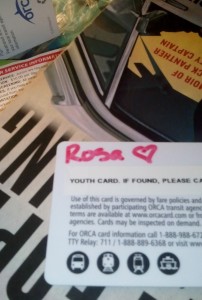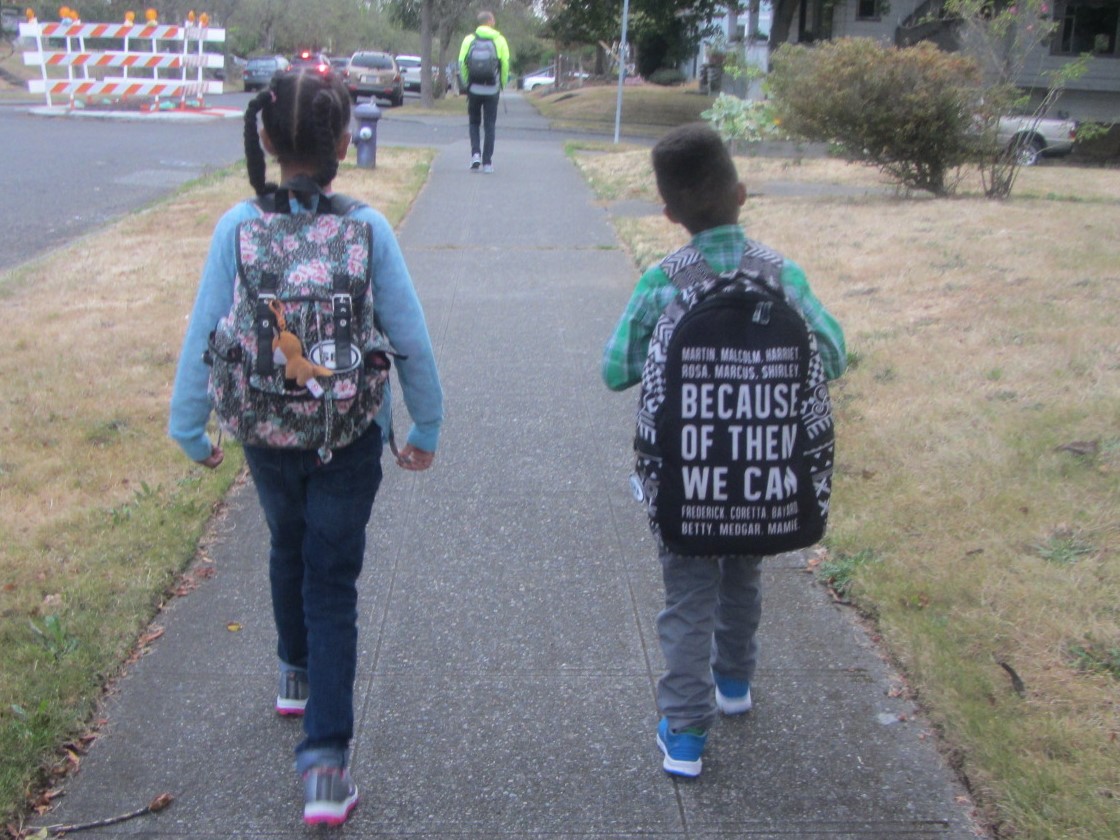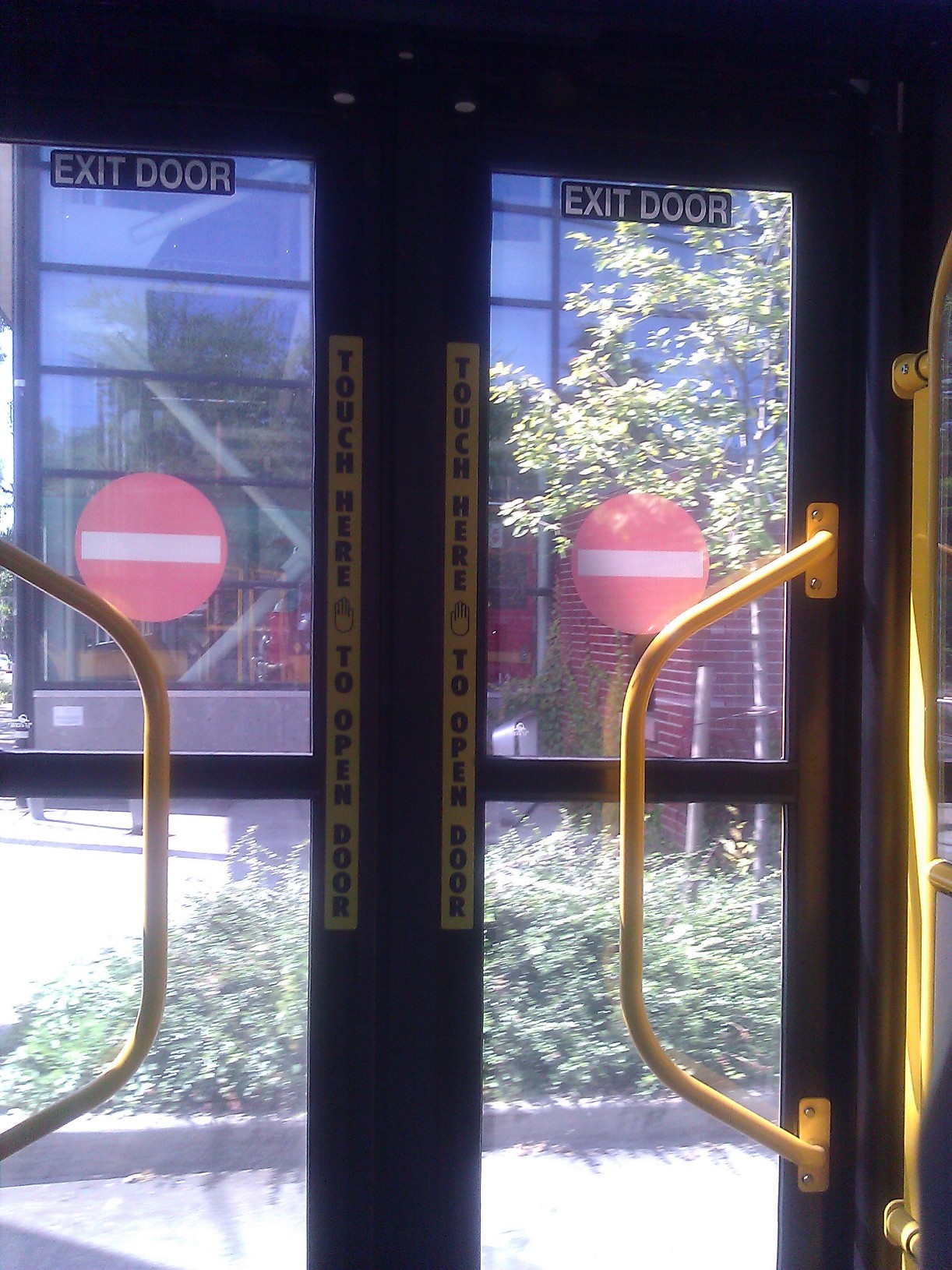My Chicklet is a woman’s woman. Almost as soon as she could talk, she was proudly asserting her gender identity – and allegiance. Now she’s eight and a half, and for the last few months, she’s been talking about feminism and women’s rights in ways I hadn’t even thought to introduce to her yet. Her delivery is a bit on the self-righteous and unforgiving side – she comes by that naturally (ahem) – but she’s not wrong about any of it.
Chicklet’s newfound feminism has caused some sibling tension. Whenever she makes an assertion about men’s role in women’s oppression, or asks to participate in something that is for girls only, her little brother gets upset. Really upset.
In their most recent exchange, he burst into tears as soon as the subject came up. “Don’t say stuff like that,” he sobbed. “You’re making me feel bad about my gender!”
Some background:
Sweet Busling is one of the most open-hearted, fair, and inclusive people I have ever known. In his world, the power balance is clearly tilted in favor of his older sister, whom he adores and looks up to. And, though his dad and I have been proactive about teaching the historical roots of racism, we have kept most of our discussions about gender to general concepts of equality, which Busling has taken to heart. He simply doesn’t see sexism as something that hurts women. Instead, he sees any attempt to single out or exclude someone based on their gender as wrong. And, he is personally offended by any suggestion that there is something wrong with being male.
For months, I have struggled with how to handle Busling’s reactions to his sister’s gender-related complaints and assertions. My instinct has been to comfort him, to push aside my daughter’s very valid critiques in the interest of protecting his feelings. After all, he has no context for understanding women’s oppression. And he certainly didn’t have anything to do with it. Plus, he’s my baby! Every time I look at his sweet face, I want to reassure him that everything is OK.
But here’s the thing: Everything is not OK. Sexism and misogyny pervade our culture. If I avoid or dismiss or sugar coat the truth so that my child can feel good, I have done him – and all of the girls and women he will interact with in the future – a disservice. And really, we’ve had enough recent examples of self-absorbed, entitled young men who see their feelings as more important than someone else’s freedom or safety.
 My son’s perspective about women’s equality is my responsibility. (Actually, it’s mine and his father’s, but you get the idea.) He doesn’t have any context about women’s oppression because he is new to the world, so it’s my job to provide it. This doesn’t mean I should teach him to feel bad or guilty about being a boy. Instead, I must teach him that oppressive, hierarchical systems hurt everyone, that his freedom is bound up with everyone else’s, and that it is his responsibility to challenge systems that harm people.
My son’s perspective about women’s equality is my responsibility. (Actually, it’s mine and his father’s, but you get the idea.) He doesn’t have any context about women’s oppression because he is new to the world, so it’s my job to provide it. This doesn’t mean I should teach him to feel bad or guilty about being a boy. Instead, I must teach him that oppressive, hierarchical systems hurt everyone, that his freedom is bound up with everyone else’s, and that it is his responsibility to challenge systems that harm people.
Experiencing my own child’s inability to recognize sexism has helped clarify many things for me, including the refusal of many seemingly sane white people to acknowledge the existence of racism. In the past, I assumed that such people feigned ignorance to mask their hostility or indifference to black and brown pain. But now, I am starting to understand that they simply have no context.
Racism, anti-blackness, and white supremacy are facts of life in the United States — part of the very foundation of our country. And yet, it is possible for white children to make it to adulthood without ever being forced to deal with this reality. Schools do not teach the truth, and parents – even those who consider themselves anti-racist – often exacerbate the problem by avoiding difficult conversations or substituting platitudes like “skin color doesn’t matter” for substantive dialog.
Of course we want our children to feel good and have a pleasant life, but our children’s comfort cannot come at the expense of justice. Parents of white children must educate their families (starting with themselves) about racism. They must teach the truth about our nation’s history. They must point out examples of racism and give their children the tools to recognize and resist it in their own lives.
We are all born into systems of oppression we had no hand in creating. Sometimes, they benefit us (in an immediate, individual sense, though certainly not in a long-term collective one); often, they don’t. Either way, it’s our responsibility to help dismantle them. Even if it’s uncomfortable.
 It was definitely a proud moment, in a milestone sort of way, when each of my kids turned six and was old enough to pay bus fare. I gave them youth ORCA cards – along with lanyards to store them in – as birthday gifts and had to restrain myself from photographing their first taps on the reader. I still get a kick out of watching them march up the bus steps and expertly tap their cards (after politely greeting the driver, of course); it is a reminder that my dreams of raising bus proficient kids are coming true.
It was definitely a proud moment, in a milestone sort of way, when each of my kids turned six and was old enough to pay bus fare. I gave them youth ORCA cards – along with lanyards to store them in – as birthday gifts and had to restrain myself from photographing their first taps on the reader. I still get a kick out of watching them march up the bus steps and expertly tap their cards (after politely greeting the driver, of course); it is a reminder that my dreams of raising bus proficient kids are coming true.



